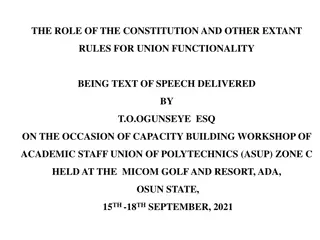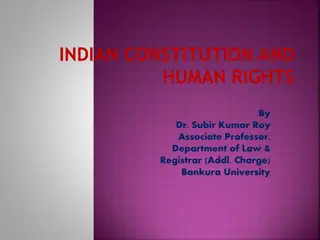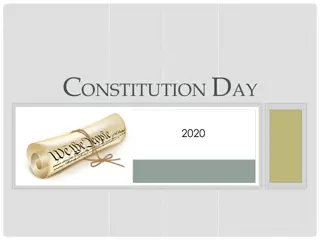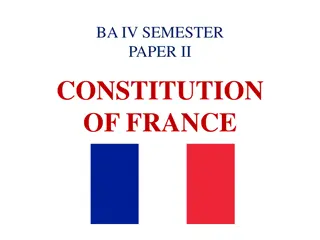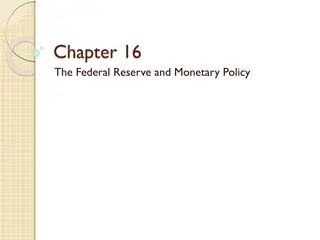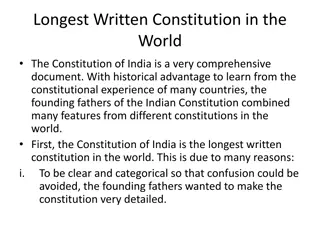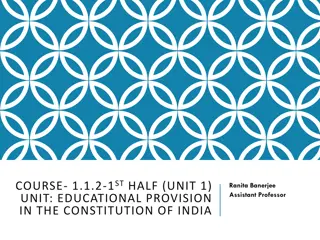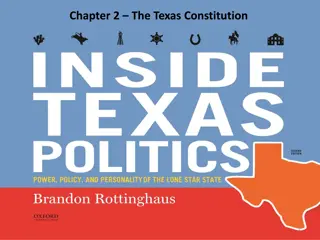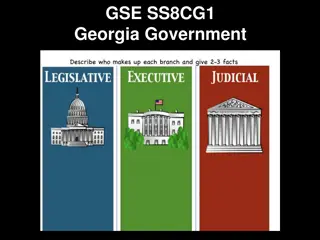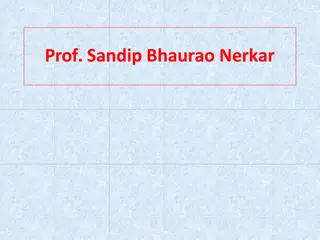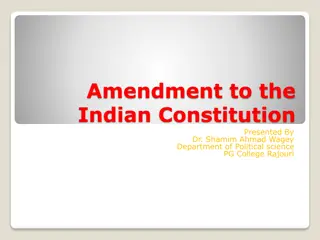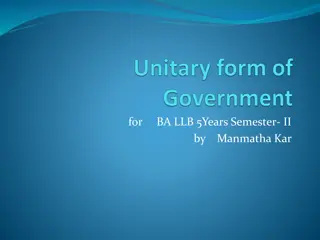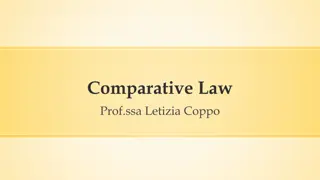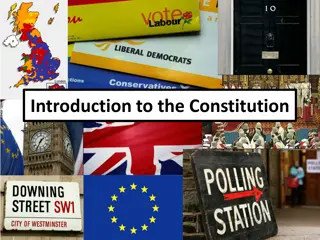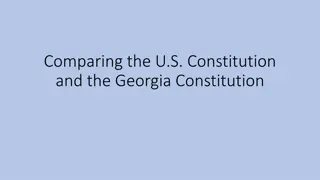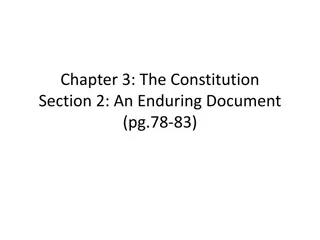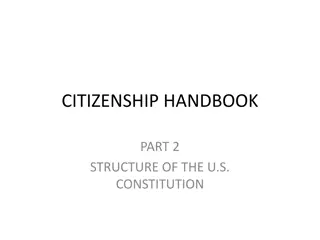Overview of the Federal Structure in the Constitution of India
The Constitution of India showcases a quasi-federal system with a strong centralizing tendency, as discussed by scholars like Kenneth C. Wheare, Sir Ivor Jennings, and Dr. B. R. Ambedkar. The essential features of a federal constitution, such as division of power, supremacy of law, and distribution of power, are present. However, certain provisions, like the appointment of governors and unified judiciary, do not entirely support the federal principle. The Constitution also includes emergency provisions and provisions for representation and residuary powers.
Uploaded on Sep 17, 2024 | 0 Views
Download Presentation

Please find below an Image/Link to download the presentation.
The content on the website is provided AS IS for your information and personal use only. It may not be sold, licensed, or shared on other websites without obtaining consent from the author. Download presentation by click this link. If you encounter any issues during the download, it is possible that the publisher has removed the file from their server.
E N D
Presentation Transcript
Nature of the Constitution of India By Ashok Kumar Astt. Professor A.B.V. School of Legal Studies C.S.J.M. University, Kanpur
Scholars View Kenneth C. Wheare: Similar to a federal system (Quasi-fedral) Sir Ivor Jennings: India has a federation, with strong centralizing tendency Dr. B. R. Ambedkar: federal Constitution
Essential Features to be present in the federal Constitution Division of power- The center and the state are not subordinate but coordinate with each other. Supremacy of law- The Constitution is the supreme law. Distribution of Power- 7th Schedule (Union, State and the Concurrent list) Written Constitution- A federal Constitution must be written. Rigidity- ratification must come from at least 50% of the states. Kihoto Hollohan vs Zachilhu & Ors. Authority of Courts- The judiciary has the final authority to interpret the Constitution.
Provisions of the Constitution not supporting the federal principle Appointment of Governors- (Article 155) done by the Central government. Rameshwar Prasad v Union of India (biasedness of governor in Bihar) B.P. Singhal v Union of India (Governor cannot be removed by the Central government on the grounds that he is not in accordance with the policies of the Central government) Single Citizenship- Parliament s power to legislate in the national interest- Article 249. Parliament s power to form new States and alter the boundaries of existing States Appointment at key positions Unified judiciary Emergency provisions- Article 356, when governance of the state can t take place according to the principles of the Constitution S.R.Bommai v Union of India Representation Residuary Powers














